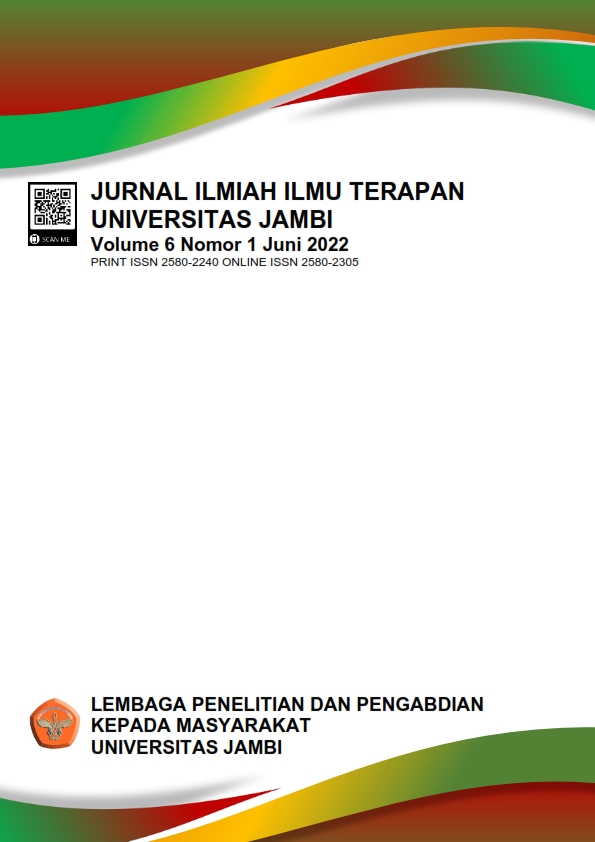Uji Viabilitas Cendawan Peronospora Manshurica Pada Biji Kedelai Impor Penyebab Penyakit Bulai (Downy Mildew)
DOI:
https://doi.org/10.22437/jiituj.v6i1.19328Abstract
Downy mildew disease in soybeans is caused by the obligate fungus Peronospora manshurica. The existence of this fungus is still limited in Indonesia. This study aimed to determine the viability of the fungus oospore P. manshurica on seeds carried on imported soybeans from Malaysia. Detection of oospores in soybean seeds was carried out by two methods: 1) Detection of soybean seeds without scale symptoms was carried out by washing or washing test techniques, and 2) Detection of soybean seeds with crust symptoms was carried out by direct examination. Oospora of P. manshurica obtained was tested for viability at the Mycology Laboratory of the Class I Agricultural Quarantine Center Jambi. Morphology observations included Oospora size, Oospora color, Oospora shape, and hyphae shape using a multi-media compound microscope (Olympus BX 51 and Olympus DP 20 camera). Oospores were observed in 10 drops of 10 l each of the precipitate suspension of each test sample. The results showed that the fungus P. manshurica on imported soybeans from Malaysia still had potential as an inoculum causing Downy mildew in soybean plants with a viability level of 3.35 - 9.93%. Morphology of Oospora P. manshurica were, diameter of 24 - 38µm, smooth and spherical shape with an irregular surface, hyaline to light brown in color. Hyphae were thick and thin-walled with varying densities. Viable oospores were marked with a reddish-orange color.
Downloads
Downloads
Published
How to Cite
Issue
Section
License
Copyright (c) 2022 Islah Hayati, Ani Ardiana Susanti*, Husda Marwan, Mapegau Mapega

This work is licensed under a Creative Commons Attribution-NonCommercial-ShareAlike 4.0 International License.











